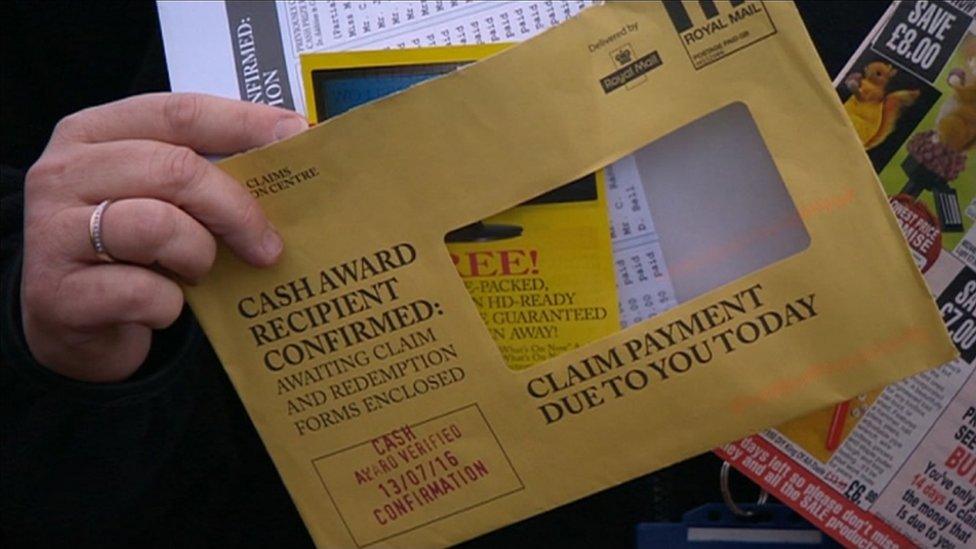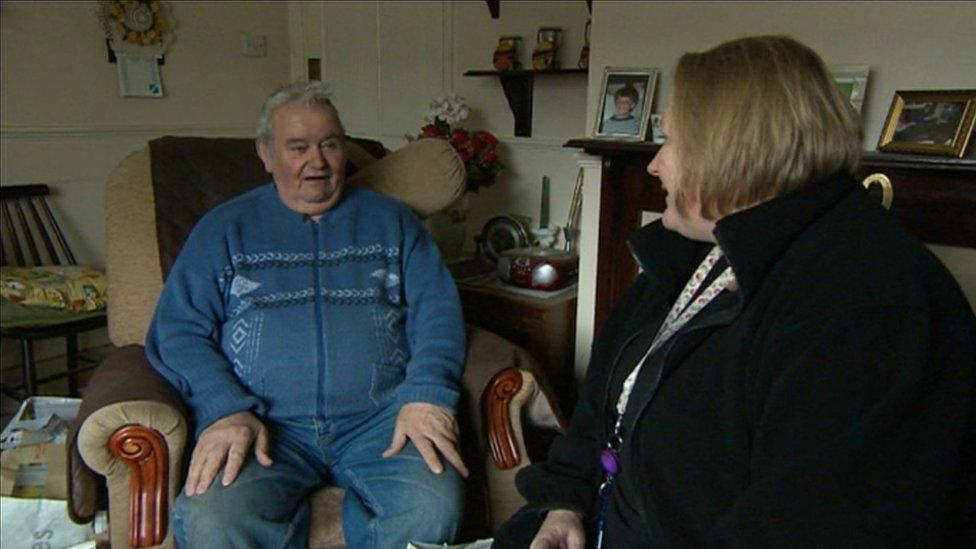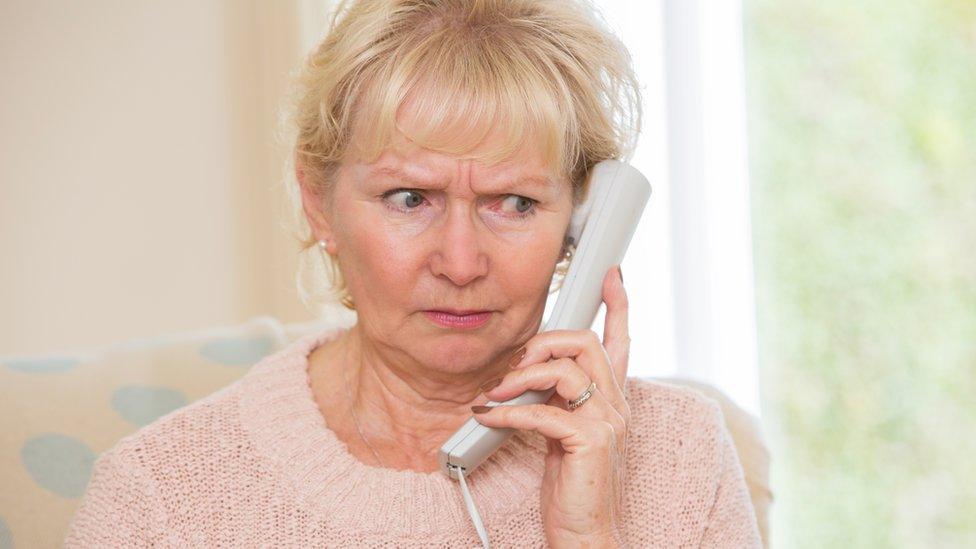Trading Standards teams 'struggling to visit' scam victims
- Published

Councils in England are supposed to contact individuals on "suckers lists" of people likely to fall victim to scams
Officials from trading standards say they are struggling to visit people who are likely to fall victim to scams, because of staff shortages.
Details of 86,000 people on so-called "suckers lists" have been passed to trading standards departments across England, according to BBC research.
The victims - many of them elderly - are sent bogus offers in the post.
Data suggests fewer than a third of them have been visited by trading standards officers to warn them.

How do the scams work?

Mass marketing scams are defined as unsolicited email, letter, phone or adverts in which false promises are made to swindle people out of money
These can involve false lotteries and prize draws, lucky charms, vitamins and bogus nutritional supplements
According to the National Audit Office, a typical victim is aged 74 and living alone, losing an average of £4,500
Since 2013, 86,556 potential victims have been referred to trading standards teams - but only 30% have been visited
The estimated total cost to victims is £3.5bn

Since it was established in 2012, the National Trading Standards Scams Team has signed agreements with councils across England to contact individuals identified on so-called "suckers lists".
The lists are made up of repeat victims who have responded to scams in the past, and are put together by trading standards teams from a number of sources, including seized lists, names uncovered in the course of investigations and names picked up from pieces of mail.
A Freedom of Information request has revealed wide variations in the way councils respond to referrals made by the scams team.
Leon Livermore, the chief executive of the Chartered Trading Standards Institute, said: "Reduced resources and increased demand have created a perfect storm where the system is breaking down around us.
"We have seen a cut to the number of the trading standards officers by 53%."
Victims who have not been visited are being contacted by post or telephone, which is regarded by the scams team as "better than no intervention".

Highest number of scam victim referrals 2013-2016
3,242 Devon and Somerset
2,400 Dorset
2,056 North Yorkshire
1,924 West Sussex
1,877 Cornwall
1,789 Hertfordshire
1,781 Lancashire
1,658 Lincolnshire
1,507 Suffolk
1,311 Norfolk

John Pearce, 67, was referred to Suffolk's Trading Standards team after his name appeared on a suckers list.
Despite being visited, Mr Pearce is still responding to scam mail.
He has spent more than £4,000 on goods from catalogues which promised him large cash prizes on the condition he orders from them.
"They aren't personal letters. They're all from these companies.
"They just keep posting them to me. I must get around six a day sometimes," he said.
"My wife is in an old people's home. But I felt that I'm not doing nothing and when all these letters came in I thought I could be doing something here.
"I'm just living in hope that I get some money just to boost the bank up."

John Pearce, who lives in Suffolk, said he received up for six scam letters every day
Professor Keith Brown of Bournemouth University, an expert who studies scams, says tackling the huge scale of fraud being perpetuated on the elderly should be a national priority.
"In a few years we'll look back at today and say, 'How do we in society let so many old and vulnerable people get conned and abused in these sort of ways?'
"How can we live in a civilised society and allow this to go on, on such a scale?" he said.
- Published18 January 2017

- Published10 January 2017

- Published21 August 2014
